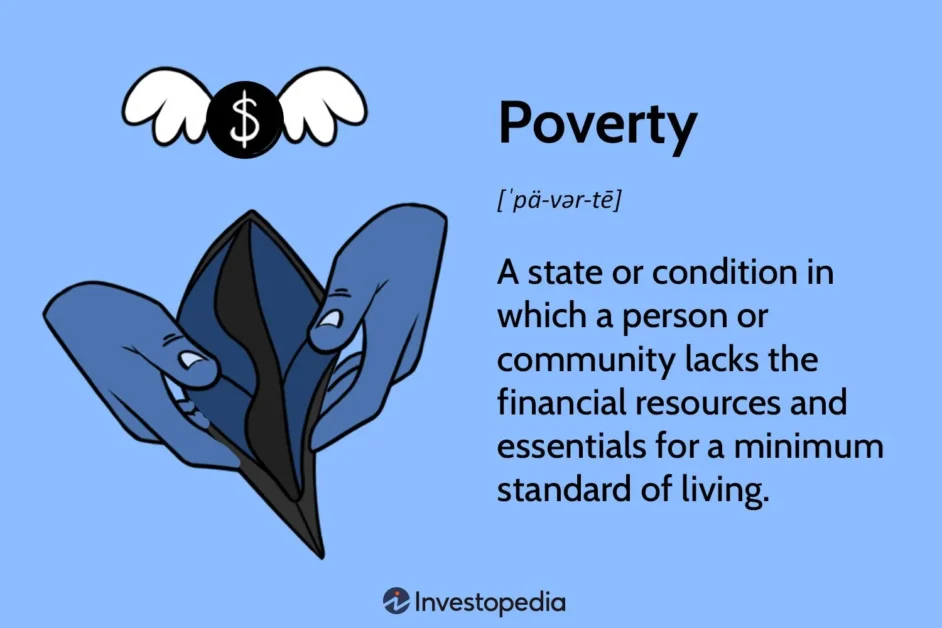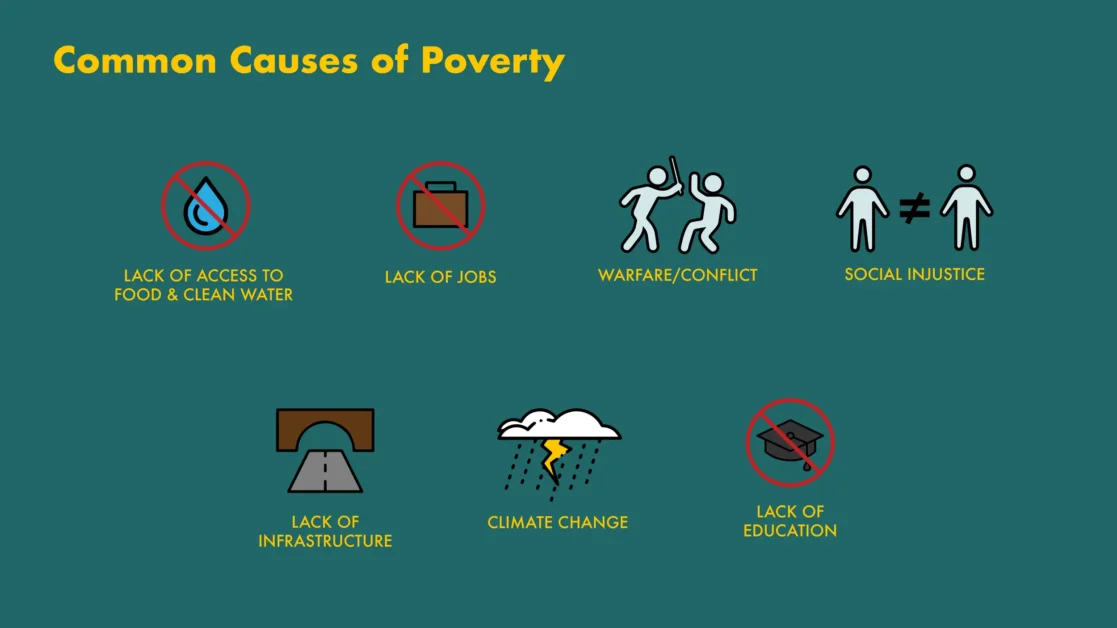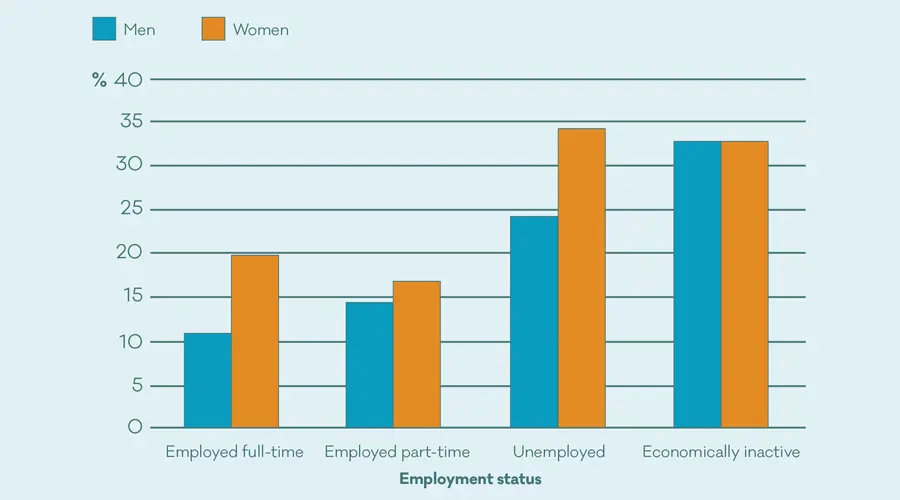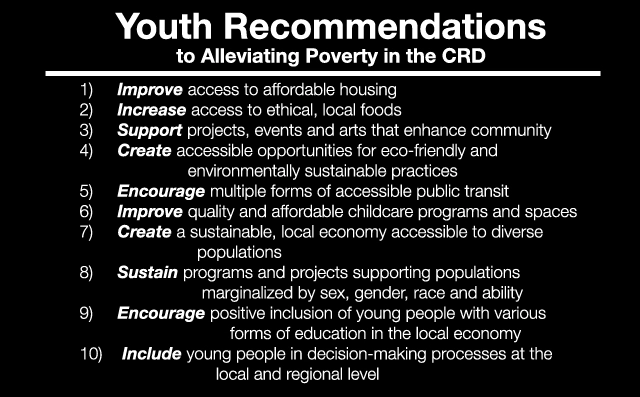This essay on poverty will cover several points that a student or teacher needs. Poverty means not having enough money for a decent life. It’s a big problem that affects many people around the world.
When families don’t have enough money, they struggle to buy food, get good healthcare, or send their kids to school. This makes life very hard and unfair for them.
There are different reasons why poverty happens. Some families don’t have jobs or they work in jobs that don’t pay enough. Sometimes, there isn’t enough education available, so people can’t get good jobs.
Other times, health problems or emergencies make it hard for families to earn money. Also, discrimination and unequal opportunities can keep people in poverty.
We can do things to help reduce poverty. Education is super important. When kids go to school, they learn skills that help them find better jobs when they grow up.
Governments can make sure that schools are good and accessible for everyone. Creating more job opportunities and ensuring fair wages also helps fight poverty.
Providing good healthcare for everyone, no matter how much money they have, is crucial too. Support from governments, organizations, and communities can make a big difference in lifting people out of poverty.
By working together and giving everyone a fair chance, we can make the world a better place where everyone has the opportunity to live a decent life without poverty.
Essay on Poverty 150 Words
Poverty is a global issue affecting millions worldwide. It occurs when individuals or families lack the resources to meet their basic needs for a decent life.
This deprivation extends to essential requirements like food, shelter, education, and healthcare.
The causes of poverty are diverse. Unemployment, low-paying jobs, lack of education, and unequal opportunities contribute significantly.
Health issues and emergencies can also push families deeper into poverty. Discrimination and societal inequalities further exacerbate this problem, making it hard for many to break the cycle of poverty.
To address poverty, education stands as a powerful tool. Access to quality education empowers individuals, opening doors to better jobs and opportunities.
Governments and organizations must create policies that generate employment, ensure fair wages, and provide accessible healthcare.
Collaboration among communities, governments, and international bodies is essential to combat poverty and create a world where everyone has a fair chance at a better life.

Essays on Poverty: The Unseen Struggle: A Portrait of Poverty
In the corners of our bustling cities and the forgotten alleys of rural landscapes lies a silent, unseen struggle–poverty. It’s a canvas painted with hues of deprivation and scarcity, where individuals battle invisible adversaries daily.
Picture a child, with hopeful eyes yet worn-out dreams, navigating a world where hunger gnaws at their belly and education remains a distant mirage. Streets become their playground, not by choice but by circumstance.
They dream amidst adversity, their aspirations whispered amid the noise of societal neglect.
Amidst the concrete jungles, families inhabit makeshift shelters, each brick a testament to resilience in the face of destitution.
Their stories are woven with threads of resilience and fortitude, their laughter echoing through the hardships.
Yet, poverty isn’t just about lacking material possessions; it’s the deprivation of dignity and opportunity. It’s the silent plea for inclusion in a world seemingly blind to its existence.

But within these narratives lies a spark–the undying hope for change. Communities band together, crafting solutions and extending hands of support.
Education becomes a beacon of light, empowering minds and breaking the shackles of generational poverty.
Amidst the grimness, moments of kindness and solidarity emerge, painting the canvas of poverty with strokes of compassion. Each act of generosity, each effort to uplift, adds color to this otherwise bleak landscape.
The battle against poverty is complex, a labyrinth of intertwined challenges. Yet, within its complexity lies the opportunity for collective action, for a world where the canvas of poverty fades into the background, replaced by a tapestry woven with equality, opportunity, and human dignity.
Argumentative Essay on Poverty in America
America, often celebrated for its prosperity, harbors a dark underbelly – poverty. Despite its economic prowess, millions within its borders grapple with the harsh realities of destitution.
This essay delves into the stark truth behind poverty in America, dissecting its causes and proposing strategies for change.
Firstly, poverty isn’t just a statistic; it’s the lived experience of countless families. The root causes are multifaceted.
Stagnant wages, inadequate access to quality education, and the soaring costs of healthcare form an intricate web entrapping individuals in cycles of poverty.
Income inequality perpetuates this issue, with the rich getting richer while the impoverished struggle to make ends meet.
Critics might argue that social safety nets exist, but they often falter under the weight of demand.
Welfare systems, designed to support the needy, face limitations in coverage and accessibility, leaving many without adequate support.
The lack of affordable housing further compounds this crisis, pushing families into homelessness and exacerbating their plight.
Poverty isn’t just an economic concern; it’s a systemic failure. It reflects societal disparities and institutional neglect.
Minorities and marginalized communities bear a disproportionate burden, facing systemic barriers that hinder their socioeconomic progress.
However, solutions exist. Investing in education, ensuring fair wages, and bolstering social welfare programs can pave the way for change.
Accessible healthcare, affordable housing initiatives, and reforms addressing income inequality are vital steps toward alleviating poverty’s grip.
In conclusion, the face of poverty in America isn’t merely a reflection of individual choices; it’s a symptom of systemic inadequacies. To truly combat this crisis, a collective effort is imperative.
America must steer its focus toward stable policies, empowering its citizens and eradicating the shackles of poverty that hinder the nation’s promise of prosperity for all.

Argumentative Essay on Poverty in America
Despite being one of the wealthiest nations in the world, America faces a stark reality: millions of its citizens live in poverty.
This persistent issue casts a long shadow on the nation, impacting individuals, communities, and the overall fabric of society. Ignoring it any longer is not only unjust but also detrimental to the future of America.
The definition of poverty is multifaceted, encompassing both lack of income and limited access to essential resources like healthcare and education.
According to the U.S. Census Bureau, in 2021, over 37 million Americans, or 11.6% of the population, lived below the poverty line.
This translates to children going hungry, families facing eviction, and individuals struggling to afford necessities.
The causes of poverty in America are complex and interwoven. Economic factors like job insecurity, wage inequality, and limited access to affordable housing play significant roles.
Social factors like racial and gender discrimination, lack of access to quality education, and inadequate healthcare further exacerbate the issue.
Addressing these root causes is crucial to breaking the cycle of poverty and ensuring a more equitable future.
The consequences of poverty are far-reaching and deeply detrimental. On an individual level, poverty leads to hunger, malnutrition, and increased susceptibility to diseases.
It also limits educational opportunities, hinders career advancement, and fuels social isolation. Poverty weakens communities, increases crime rates, and creates a burden on social services.
Ignoring poverty is not only morally reprehensible but also economically unsustainable. Studies show that poverty costs the U.S. economy billions of dollars every year because of lost productivity, increased healthcare costs, and social unrest.

Investing in programs that address poverty, such as affordable housing initiatives, quality education access, and job training, not only empowers individuals but also strengthens the nation.
Several effective solutions exist to tackle poverty in America. These include raising the minimum wage, expanding access to affordable housing and healthcare, investing in early childhood education, and providing job training and retraining programs.
Promoting policies that address racial and gender inequality and strengthen the social safety net are crucial steps toward creating a more equitable society.
Eradicating poverty is not a utopian dream; it is an achievable goal that requires collective action.
By acknowledging the severity of the issue, addressing its root causes, and implementing effective solutions, America can create a future where everyone can thrive and reach their full potential.
The time to act is now before the shadow of poverty grows even larger and dims the American dream for too many.

